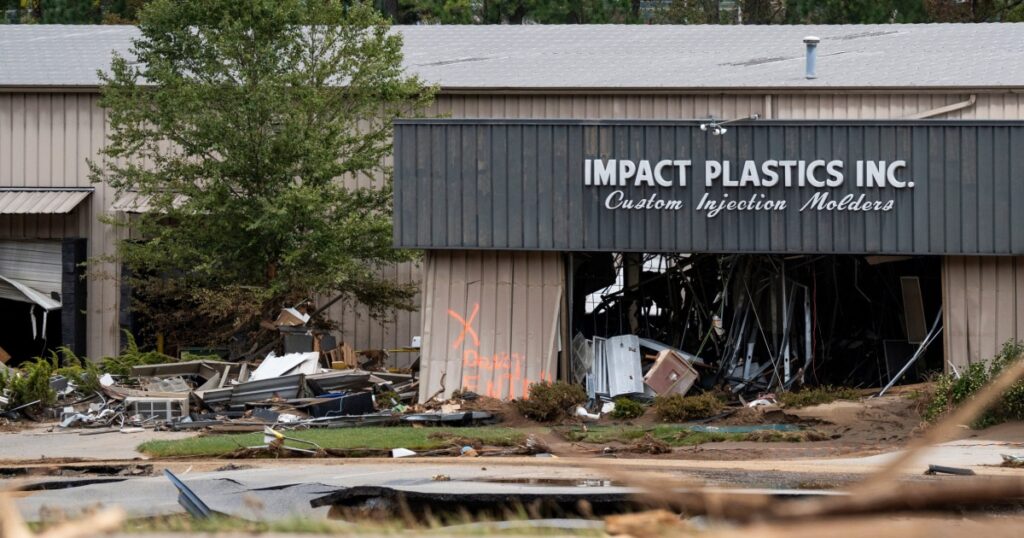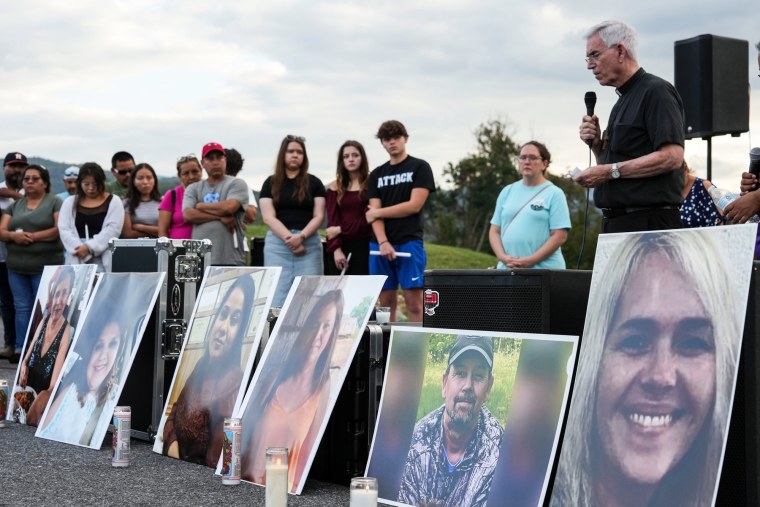
Tennessee’s workplace safety agency has absolved a plastics plant of responsibility in the deaths of six workers who were swept away by floodwaters from Hurricane Helene in September.
The Sept. 27 deaths gained national attention when community members and relatives of the mostly Latino plant employees questioned why they hadn’t been dismissed from work early enough to escape the record levels of rain that overcame the plastics factory in Erwin and take the only road out.
The report from the Tennessee Occupational Safety and Health Administration (TOSHA) published Wednesday, said that because “work operations had stopped and employees had left the building,” the deaths were not work-related and thus not within its jurisdiction.
“After considering the evidence,” Chris Cannon, a spokesman with the Tennessee Department of Labor and Workforce Development, said, “TOSHA determined that company management exercised reasonable diligence in dismissing employees and providing them sufficient time to leave the facility safely.”
A criminal probe by the Tennessee Bureau of Investigation into the deaths is still underway, said Leslie Earhart, the bureau’s spokesperson.
Five employees and one contractor were killed when the semi-truck trailer they had sought refuge on was overtaken by raging floodwaters. They were Monica Hernandez-Corona, 44; Bertha Mendoza, 56; Johnny Peterson, 55; Lidia Verdugo Gastelum, 63; Rosa Maria Andrade Reynoso, 29; and Sibrina Barnett, 53. Six others were tossed from the truck bed and later rescued.
Attorneys representing relatives of some of the deceased employees rejected the probe’s conclusions.
“TOSHA’s report ignores multiple witnesses’ testimonies, critical text messages, emergency alert logs, and photographic evidence that tell the real story about Impact Plastics’ fatal failures,” Zack Lawson, an attorney representing Alexa Peterson, Johnny Peterson’s daughter, in a wrongful death lawsuit against Impact Plastics. “We’re grateful that in America, juries — not bureaucrats citing unnamed sources — will decide the truth based on all the evidence.”
Greg Coleman, an attorney for the Mendoza and Barnett families, said they “vehemently disagree with any characterization that Impact Plastics exercised reasonable diligence in dismissing employees.”
The facts, he said, do not support a finding that the floodwaters were already too high and strong when the factory “finally, and begrudgingly, allowed workers to leave.”
While he agreed with a suggestion from the safety administration that the plant should improve its emergency plans, “this comes far too late for our clients.”

Relatives of the missing and dead factory employees, and those who survived, have alleged they were made to show up to work even as the hurricane was moving through the area.
The day before the historic flood, the National Weather Service in Morristown, Tennessee, issued several warnings of potential flooding for the rest of the week.
The local school district canceled school, citing weather warnings, and at least one other company in the same industrial park as Impact Plastics, Foam Products Corp., closed their doors Friday. It was the first time their Erwin plant had ever closed for extreme weather.
Impact Plastics, which manufactures components for cars, helicopters, furniture and other products, decided to open that Friday, as did several other nearby businesses.
Through lawyers, Impact Plastics said in a statement Wednesday that it welcomed the results of TOSHA’s investigation and that the company and its founder, Gerald O’Connor, have cooperated with it.
“Impact Plastics and Gerald O’Connor continue to concentrate on seeing to the needs of members of the Impact Plastics family and grieving over the wonderful people who were lost in the flood,” the company stated. “Mr. O’Connor is focused on rebuilding Impact Plastics for the benefit of the employees, the customers, and the community.”
 Latest Breaking News Online News Portal
Latest Breaking News Online News Portal






